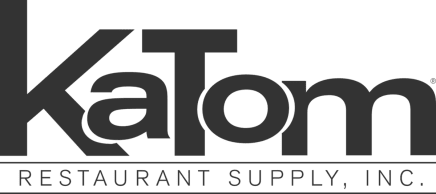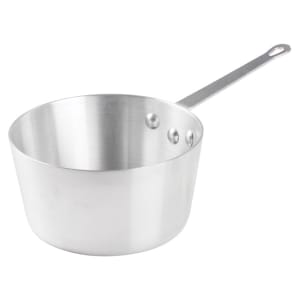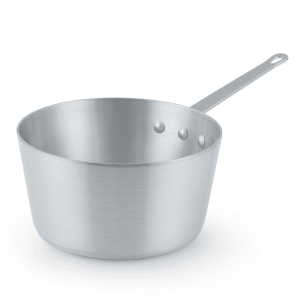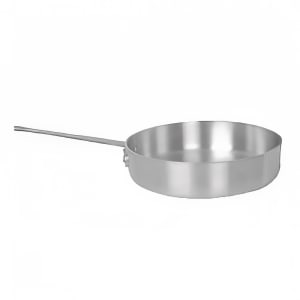Aluminum Cookware
Aluminum cookware is lightweight and conducts heat well, making it a popular choice for commercial kitchens. Choose from cookware such as frying pans, stock pots, and saucepans that may include a nonstick coating. More
Commercial Aluminum Cookware: What You Need to Know
Whatever foodservice operation you run, commercial aluminum cookware is an affordable option to keep on hand for quick and efficient cooking of pasta, soups, and more. Do all your cooking with aluminum, or keep aluminum cookware in your kitchen as a backup option.
Pressed aluminum, cast aluminum, and anodized aluminum – in that order – provide progressively higher levels of resistance to corrosion and durability in cooking. Pressed aluminum, often paired with a nonstick coating, is the most common commercial aluminum cookware.
Common Questions About Aluminum Cookware
What types of cookware are available?
Numerous aluminum cookware options are available for every step of the cooking process, including the following:
- Aluminum saucepans are ideal for preparing numerous nonacidic sauces and purees as part of the cooking process.
- Frying and saute pans made of aluminum are a commercial kitchen fixture that have a shallow interior and typically measure 7 to 14 inches in diameter. They often include a nonstick coating and heat-resistant silicone handle.
- Aluminum stock pots are a lightweight, affordable option that can hold 120 quarts of stocks, broths, and soups.
- Aluminum braising pots are wide, flat aluminum pans designed to slow cook meats and vegetables.
Is aluminum better than stainless steel for cooking?
Aluminum cookware offers more even heat transfer than stainless steel but may not be the best option for highly acidic foods or long-term durability. Additionally, because aluminum is not a ferrous metal, it is not compatible with induction cooking.
What are commercial aluminum pots good for?
Aluminum pans are an excellent conductor of heat, which makes them a good option for heating and reheating soups, sauces, and purees that aren't highly acidic or alkaline. Avoid cooking dishes that include large quantities of tomato, lemon, or salt.
How do I remove discoloration from an aluminum pan?
One of the drawbacks to aluminum cookware is it tends to discolor much quicker than stainless steel. A simple way to reduce this discoloration is to boil a solution of two tablespoons of cream of tartar per quart of water in the cookware for ten minutes.
Are aluminum cooking pans dishwasher safe?
Cleaning aluminum cookware in the dishwasher can lead to discoloration and even pitting corrosion. Hand wash your aluminum pots and pans with a mild detergent, wipe water off with a soft towel, and store in a dry space. Allow aluminum pots to cool completely before washing or soaking to prevent warping.
How do you season aluminum cookware?
Seasoning aluminum cookware that doesn't include an anodic or nonstick finish before first use can help prevent discoloration and other corrosion, while keeping food from sticking to the surface. In a clean pan free of debris, heat oil to the point of smoking, then allow it to cool. Repeat this process several times to establish several layers of protection and wash with cool water.



